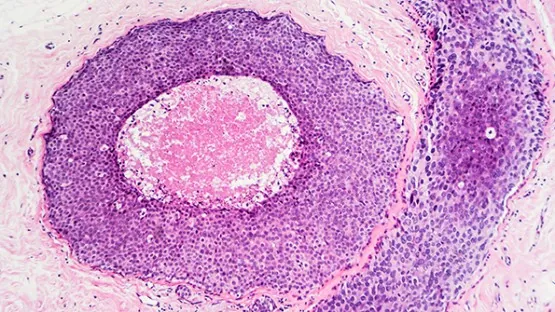
Shocking Discovery: Omega-6 Fatty Acid Fuels Aggressive Breast Cancer Growth!
2025-04-03
Author: Arjun
Groundbreaking Study from Weill Cornell Medicine
A groundbreaking study by researchers at Weill Cornell Medicine has revealed that linoleic acid, an omega-6 fatty acid prevalent in seed oils like soybean and safflower, as well as in animal products such as pork and eggs, significantly stimulates the aggressive 'triple-negative' subtype of breast cancer. This revelation could pave the way for new dietary recommendations and treatment strategies to combat breast cancer and potentially other cancers.
Key Findings Published in *Science*
Published on March 14 in the prestigious journal *Science*, the study highlights how linoleic acid interacts with a specific protein called FABP5, which is significantly abundant in triple-negative breast cancer cells. Unlike other hormone-sensitive breast cancer subtypes, where this mechanism does not seem to apply, the research focused on the unique characteristics of triple-negative tumors.
Impact of Linoleic Acid on Tumor Growth
In a carefully controlled animal model resembling human triple-negative breast cancer, researchers found that a diet rich in linoleic acid accelerated tumor growth. 'This discovery clarifies the complex relationship between dietary fats and cancer, offering insights into personalized nutritional strategies that could help specific patient groups,' said John Blenis, the senior author of the study and a noted Cancer Research professor.
Rising Omega-6 Intake and Health Implications
The study's authors emphasize the alarming increase in omega-6 intake in Western diets since the 1950s, primarily attributed to the rise in the usage of seed oils found in fried and ultra-processed foods. This mounting evidence sparks a crucial debate regarding the health implications of excessive omega-6 consumption, particularly its potential role in rising cancer rates in recent decades.
mTORC1 Pathway's Role in Cancer
The researchers focused on the mTORC1 pathway, a crucial nutrient-sensing signaling pathway associated with cancer cell metabolism and growth. Their findings reveal that linoleic acid can trigger this pathway, but only in triple-negative breast cancer cells, marking a significant distinction compared to other breast cancer types.
FABP5 as a Biomarker
Another pivotal discovery is that when mice on a high-linoleic-acid diet were studied, their tumors exhibited not only increased FABP5 levels but also enhanced mTORC1 activity and accelerated growth. Moreover, higher amounts of FABP5 and linoleic acid were found in blood samples from recently diagnosed triple-negative patients, indicating a potential link between this fatty acid and the disease.
Broader Implications for Cancer and Chronic Diseases
This study not only emphasizes the need for more targeted dietary interventions but also establishes a clear mechanism through which linoleic acid may influence breast cancer progression. Given the multifactorial nature of cancer, the identification of FABP5 as a possible biomarker could lead to personalized therapies for patients battling this hard-to-treat breast cancer subtype.
Future Research Directions
But the implications don't stop at breast cancer. The research suggests a broader relevance for FABP5-mTORC1 signaling in other cancer types and chronic diseases, like obesity and diabetes. 'We're just beginning to uncover the extent of omega-6 signaling implications in cancer and metabolic diseases,' stated Nikos Koundouros, the first author of the study.
Conclusion
As we navigate through the complex landscape of dietary fats and their impact on our health, this study sheds light on the urgent need for further research. With the promise of potential dietary and therapeutic advancements, the implications of these findings could not only change the way we view omega-6 fatty acids but also reshape how we approach cancer prevention and treatment. Stay tuned for more revelations in the ongoing fight against cancer!




 Brasil (PT)
Brasil (PT)
 Canada (EN)
Canada (EN)
 Chile (ES)
Chile (ES)
 Česko (CS)
Česko (CS)
 대한민국 (KO)
대한민국 (KO)
 España (ES)
España (ES)
 France (FR)
France (FR)
 Hong Kong (EN)
Hong Kong (EN)
 Italia (IT)
Italia (IT)
 日本 (JA)
日本 (JA)
 Magyarország (HU)
Magyarország (HU)
 Norge (NO)
Norge (NO)
 Polska (PL)
Polska (PL)
 Schweiz (DE)
Schweiz (DE)
 Singapore (EN)
Singapore (EN)
 Sverige (SV)
Sverige (SV)
 Suomi (FI)
Suomi (FI)
 Türkiye (TR)
Türkiye (TR)
 الإمارات العربية المتحدة (AR)
الإمارات العربية المتحدة (AR)